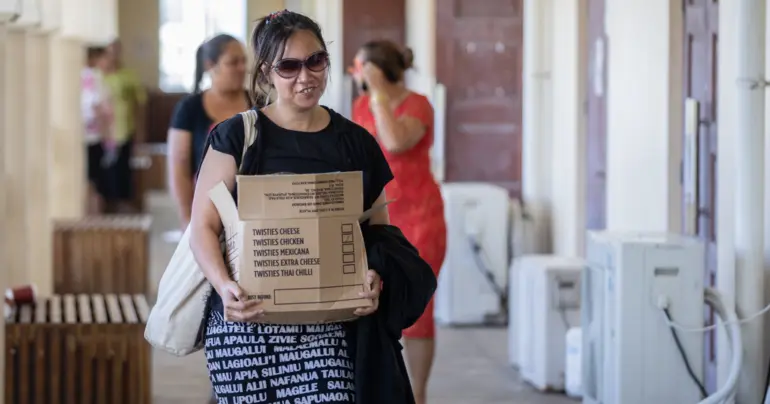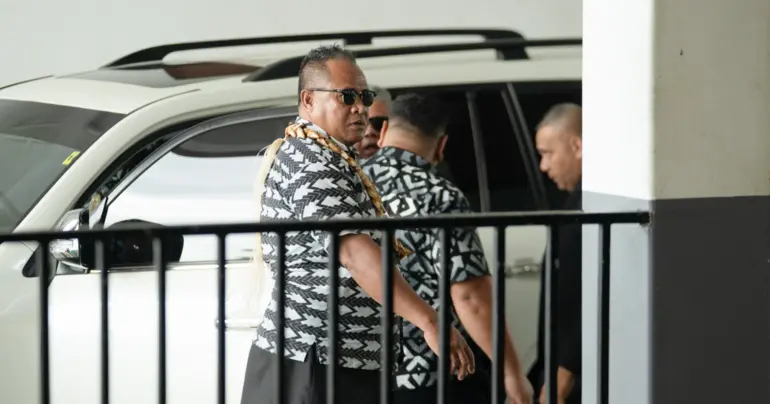Dissecting the plastic ban and joining the global effort
A lot has been written and said about the ban on single-use plastic bags and straws in Samoa since it was announced.
The Government-imposed prohibition went into effect January 30, 2019.
But two days after the ban and in an age of digital technology and social media, we have to ask if the key messages are getting to the wider public?
The Ministry of Natural Resources and Environment (MNRE) dedicated a page on their website to the issue, which is rightly titled “Plastic Ban Initiative Consultations”.
The page has pertinent information on the issue: 8 million tonnes of plastic being dumped into the ocean annually; the planet producing 32 million metric tons of plastic in 2015; studies pointing to fish consumed by humans ingesting tiny ocean plastic; and estimates by the MNRE of a significant increase in waste from Samoa from 26,000 tons per annum in 2011 to 32,850 tons per annum in 2017. This is a 20.85 per cent increase in waste generation by Samoa over a six-year period.
These are very important information – which should form the basis of a communication strategy using multiple platforms – to reach out to the masses and compel them to act! Sadly, you can only find this information on the MNRE website as the Ministry doesn’t have a Facebook page, which could see young Samoans – who are spending more time today on social media platforms such as Facebook – missing such critical information and forgoing the opportunity to champion the cause.
Despite the Ministry’s absence from Facebook, non-government organisations have taken on the responsibility to reach out to the public with the core messages. For example, local conservation organisation ProGreen Samoa, has been promoting the sale of re-useable shopping bags and started a social media-based Clean Samoa Campaign.
The campaign entails cleaning your environment for 5 minutes, taking photos before, during and after the clean-up activity, and posting them to Facebook, Instagram and tagging ProGreen Samoa #ProgreenSamoa.
“ProGreen Samoa has officially opened its 5 Minute Challenge to the Public of Samoa. In 5 minutes, we challenge you to simply clean up your surrounding areas. It can be your household, office work space, your garage, your yard... and win yourself a big big prize!
“Step 1: Clean Up your surroundings/environment for 5 minutes. Step 2: Take photos before, during and after your clean up activity. Step 3: Post them on facebook, instagram and tag ProGreen Samoa #ProgreenSamoa. Only one winner, the more entries you have, the better the chances of you winning!”
The competition is the kind of social media content that would attract a large following. Kudos to ProGreen Samoa on the ingenuity – in a bid to get the message out to the younger generation.
So what exactly is the regulation? A public notice issued by the MNRE two weeks ago states that the Waste (Plastic Bag) Regulation 2018 prohibits the import, manufacture, export, sale and distribution of plastic shopping bags, packing bags and straws effective 30 January 2019.
Plastic shopping bags covered by the regulation is a bag made in whole or partly of thin plastic film and contains starch (such as biodegradable bags) or full petroleum, or additive used as shopping bags and packing bags. Packing bags mean packing bags used for re-packing and storage of products.
There are plastic bags that are exempted, due to their use in food safety where plastic packaging is necessary.
The following items, according to the MNRE public notice, are exempt from the prohibition: meat, frozen ice cream, ice cubes, locally-produced chips, local-produced kekesaina, ava, local biscuits, repacked coffee, tea, sugar, flour and cocoa. The Ministry has begun monitoring the ban from January 30, 2019 and failure to comply will result in a conviction to a fine not exceeding 100 penalty points or SAT $10,000.
While the rationale behind the ban on single-use plastics is clear, questions remain on whether the MNRE has done enough – to ensure that there are alternatives for members of the public – who have grown so reliant on plastic shopping bags over the years.
Some supermarkets in Apia are selling large shopping bags for under $3 or $5 for customers to put their groceries into. Others are offering cardboard boxes or paper bags as an alternative to single-use plastic bags.
Or simply bring your own bags from home! What about traditional Samoan baskets woven from coconut leaves which can be tailor-made into grocery bags? This could become a money-spinner for village artisans, and over the long-term lead to the creation of a sustainable eco-friendly basket-making industry.
While the Government’s ban on single-use plastic bags and straws is expected to face teething problems from the start, its benefits to Samoa and the planet should not be downplayed.
For a country that is dependent on water, the ocean and marine life – in terms of the impact of plastic waste on the food chain and the public health of Samoans – the ban is a step in the right direction, and shows the world Samoa is walking the talk as part of global efforts to end plastic pollution.
Have a wonderful Friday Samoa and God bless.










